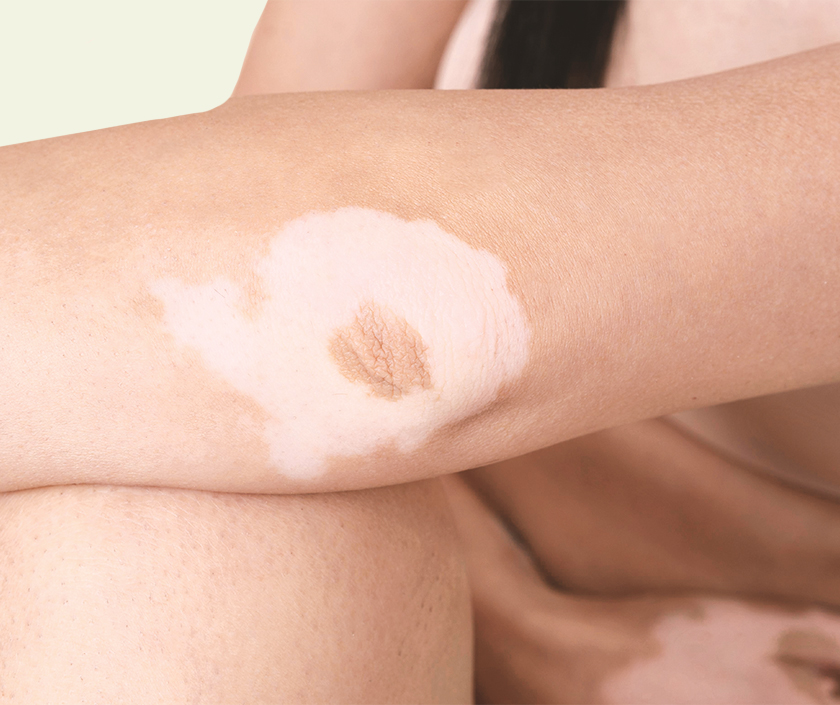Melanocyte culture is a laboratory technique used to grow and maintain melanocytes, which are pigmented cells found in the skin. The goal of this procedure is to produce a large number of melanocytes that can be used for various applications such as treating skin conditions such as vitiligo, and for research purposes.
During the melanocyte culture process, small samples of pigmented skin are taken from a healthy donor and the melanocytes are separated from the skin. These cells are then placed in a culture dish and provided with the necessary nutrients and growth factors to promote proliferation and survival.
Melanocyte culture is a complex and time-consuming process that requires specialized equipment and trained personnel. The procedure is typically performed in a laboratory setting and the cultured melanocytes are used for various applications such as repigmenting the skin in vitiligo, developing new treatments for skin conditions, and for research purposes.
Melanocyte culture is considered a safe and effective way to produce large numbers of melanocytes. However, as with any laboratory technique, there are risks involved such as contamination of the cells, and variations in the quality of the cells produced. It is important to ensure that the laboratory performing the culture is well equipped, and the personnel are well trained.
If you have any questions regarding our services, please contact us or call at +91 9879546805.
Melanocyte Culture Results
Hear from our patients
ExcellentBased on 1399 reviews
 Rakesh Patel2024-02-15Thanks dr. Ashutosh shah All staff
Rakesh Patel2024-02-15Thanks dr. Ashutosh shah All staff Henee Morthana2024-02-03Maru ekshidant thayu hatu Dr ashutosh shah e kari apyu ane mast thai gayu 6e to hu dr. Ashutosh shah ne thanks keu 6u Ane emna staff ne pan thans kau 6u
Henee Morthana2024-02-03Maru ekshidant thayu hatu Dr ashutosh shah e kari apyu ane mast thai gayu 6e to hu dr. Ashutosh shah ne thanks keu 6u Ane emna staff ne pan thans kau 6u Akash Bharwad2024-01-25Thanks dr Ashutosh shah
Akash Bharwad2024-01-25Thanks dr Ashutosh shah Qaid Johar2024-01-23Nice clinic
Qaid Johar2024-01-23Nice clinic Nita Trivedi2024-01-22Good staff & nice dictor
Nita Trivedi2024-01-22Good staff & nice dictor Yash Patel2024-01-16Nice clinic. Very good enivronment and specially Dr. Ashutosh shah is great.
Yash Patel2024-01-16Nice clinic. Very good enivronment and specially Dr. Ashutosh shah is great. Pratik Mahant2024-01-15Very professional service and completely satisfied with the treatment and regular checkups. Thank you.
Pratik Mahant2024-01-15Very professional service and completely satisfied with the treatment and regular checkups. Thank you. chakabhai dj2024-01-13Good staff and good service👍
chakabhai dj2024-01-13Good staff and good service👍 Kishan Mistry2024-01-11Veri good treatment for doctor
Kishan Mistry2024-01-11Veri good treatment for doctor Karan Gupta2024-01-09orchiectomy at Elegance Clinic on December 16th, experience was really very good, staff behaviour also good, also budget frendy.
Karan Gupta2024-01-09orchiectomy at Elegance Clinic on December 16th, experience was really very good, staff behaviour also good, also budget frendy.
Frequently Asked Questions
Having doubts and questions? These are few questions our customers normally ask us!
What is the purpose of hymenoplasty surgery?
Hymenoplasty is performed to reconstruct the hymen, which may be desired for cultural, religious, or personal reasons.
Can the hymen grow again?
The hymen does not regrow naturally; however, hymenoplasty surgically restores its presence.
Why is my hymen not opening?
Variations in hymen elasticity and opening are normal. If there are concerns, it’s best to consult a gynecologist.
Can a girl bleed after hymenoplasty?
Some bleeding is possible after hymenoplasty, similar to what might occur with the initial breaking of the hymen.
Can hymen bleed 2 times?
The hymen can only bleed once naturally. Post-hymenoplasty, it may bleed again upon rupture.
Does hymenoplasty restore virginity?
Hymenoplasty reconstructs the hymen physically but does not ‘restore’ virginity in a biological sense.
How many times can hymen bleed?
The hymen typically bleeds once upon tearing. After hymenoplasty, it may bleed again if ruptured.
Can a non-virgin bleed again?
Post-hymenoplasty, a woman may experience bleeding upon the hymen’s rupture, similar to the first time.
Is it necessary to bleed on the first night?
Bleeding is not a universal indicator of virginity or sexual experience. It varies among individuals.
How can a husband know that his wife is not a virgin?
Virginity cannot be determined physically. It’s a personal aspect that relies on trust and communication.
How long does hymen take to heal?
The healing time for hymenoplasty is typically around 6-8 weeks, but it can vary.
Do boys bleed on the first night?
Boys do not experience bleeding related to virginity.
Did your wife bleed on the first night?
This is a personal and private matter, and bleeding is not a definitive indicator of virginity.
Can you bleed if your partner is too big?
Bleeding can occur due to various reasons, including the size of the partner, but it’s not a certainty.
Contact Us
Ready to discuss? Fill out our contact form for a confidential consultation.







